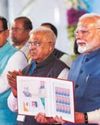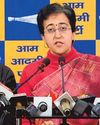
To make the most of a turbid situation, I convinced my boss to let me attend a conference on family businesses at the Indian School of Business in Hyderabad, purportedly to learn more about the theory part of management. The conference turned out to be surprisingly useful, as much for the sessions as for the impromptu group chats during the breaks.
During one such break, I heard the well-known head of a family-led enterprise say: "They (meaning the expert speakers) want us to plan family succession, but what if we have a family idiot?"
His audience, other heads of business families, were nodding vigorously. The speaker had come into his own during the 1990s, while the country unshackled businesses and ushered in an era of competition and near-free markets. But he appeared to have serious misgivings about passing on the baton to the next generation.
The 1990s saw an entire posse of businessmen flower. Ratan Tata went from being the fledgling head of a sprawling empire to a player on the global stage. N R Narayan Murthy and Azim Premji rode the information technology outsourcing wave to the extent that "Bangalored" became a term to describe those who had lost their jobs in the United States.
Birla and Modi, entrenched business houses well before the onset of liberalization in 1991, grew bigger, with their many shoots and branches. Rama Prasad Goenka established acquisition as a bonafide business strategy for growth. Bajaj took foreign competition head on and morphed into a motorcycle company, leaving behind its storied legacy of scooters—essential dowry items at one point—for which buyers waited years.
この記事は Business Standard の October 25, 2024 版に掲載されています。
7 日間の Magzter GOLD 無料トライアルを開始して、何千もの厳選されたプレミアム ストーリー、9,000 以上の雑誌や新聞にアクセスしてください。
すでに購読者です ? サインイン
この記事は Business Standard の October 25, 2024 版に掲載されています。
7 日間の Magzter GOLD 無料トライアルを開始して、何千もの厳選されたプレミアム ストーリー、9,000 以上の雑誌や新聞にアクセスしてください。
すでに購読者です? サインイン

Pope urges 'all people of all nations' to silence arms
Pope Francis in his traditional Christmas message Wednesday urged \"all people of all nations\" to find courage during this Holy Year \"to silence the sounds of arms and overcome divisions\" plaguing the world, from the Middle East to Ukraine, Africa to Asia.
Women in auto sector grapple with low wages, surging finger injuries
The severity of injuries among women in India's auto sector has been rising steadily from 2019 to 2024, according to the latest report by the Safe in India Foundation (SIIF), released last Friday.

Regular staffers in CPSEs decline 3.14% in FY24
Share of contract workers rises 8.8% to 704,565 in the same period

AI to D2M—DPG 2.0 needs deep-tech action now
From artificial intelligence to direct-to-mobile broadcasting, India faces a technology strategy dilemma on whether to develop indigenous deep-tech ecosystems or to follow the lead on technologies developed outside India.

SURETY VS GUARANTEE
Surety bonds have begun to outshine bank guarantees. But did they come in too late?

10 Picks Tailored for 2025 Market Terrain
These stocks, handpicked by top brokerages, offer a blend of value and growth. After declining 13-37% from their 52-week highs, these scrips boast reasonable valuations and high return on equity, signalling strong upside potential. KRISHNA KANT outlines the blueprint for gains
Shah, Naidu, other NDA leaders meet at Nadda's residence
Leaders of the National Democratic Alliance (NDA) met at BJP president J P Nadda's Delhi residence on Wednesday on the birth centenary of former prime minister Atal Bihari Vajpayee.

PM Recalls Ambedkar's Vision, Slams Congress
Prime Minister Narendra Modi on Wednesday accused Congress of ignoring Dr B.R. Ambedkar's contribution to the development of water resources in the country as he laid the foundation stone of the Ken-Betwa river linking project in Madhya Pradesh.

AAP Schemes Disowned by Delhi Govt's Own Depts
After the Bharatiya Janata Party (BJP) and the Congress termed two of the Aam Aadmi Party (AAP)'s recently announced welfare schemes a hoax, two senior Delhi government officers issued public notices on Wednesday disowning these schemes.
Lock in long-term returns with non-par plans
With markets doing well for four years, many investors turned to unit-linked insurance plans (Ulips). However, with volatility increasing, traditional non-participating (non-par) insurance plans are gaining popularity for their guaranteed, tax-free returns.